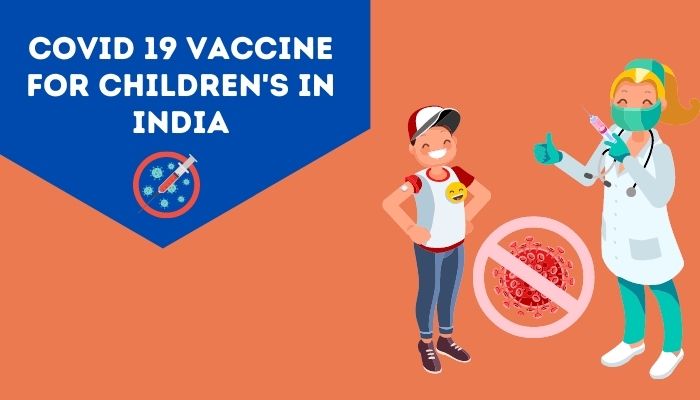This is the most concerning question we should address in order to diminish the spread of COVID - 19. Until 2020 it was known that the coronavirus could only be spread through people who have been infected by it and showed the symptoms, whereas lately, it has been discovered that COVID - 19 can also spread through people who showed no signs or symptoms of being ill.
This leaves us in a state of an utter dilemma because if the virus can spread through people without displaying the symptoms, then how can we be able to recognize it and help the infected people. Solely for this purpose, scientists and researchers have categorized its spread into three parts - asymptomatic, pre-symptomatic, and mildly symptomatic. These terms will help us better understand the spread of COVID- 19 among people.
Asymptomatic spread
- According to researchers, the people who don't show any symptoms or signs of coronavirus even after being infected with the virus are called asymptomatic. A minority of the people can be labeled under this category.
- Asymptomatic carriers have been verified in certain situations by locating and testing persons who were in close touch with COVID-19 patients. Different examination actions conducted have shown that around 25% of people who tested positive without symptoms still don't have any traces of symptoms. Until further testing is done, no one can accurately tell the impact of asymptomatic cases on the spread. And the people who are impacted appear to be young.
Pre - symptomatic spread
- After you read the term pre-symptomatic, it becomes clear that the person who has been infected by a virus but is yet to develop and show any signs of symptoms is called pre-symptomatic.
- According to particular research, it has been deduced that symptoms may not appear for five to six days or even two weeks after infection. The period between contracting the virus and developing symptoms is referred to as the pre-symptomatic phase. People tend to be most infectious immediately around the time symptoms begin. These people are highly capable of transmitting viruses.
- So far, pre-symptomatic is significantly more prevalent than asymptomatic. Around 75% of those who test positive without showing symptoms turn out to be pre-symptomatic, presenting coughing, tiredness, fever, and other indicators of COVID-19 in a later follow-up assessment.
Mildly symptomatic spread
- This term itself suggests that people who have been infected by the virus display mild symptoms of it. Hence they are called mildly symptomatic.
- According to some researchers, it is believed to be a lesser-known problem amongst the causes behind the spread of the virus. However, it can just easily be transmitted to others during the phase when people are coughing or have a fever. People who continue to visit communal and public locations while suffering from a light cough or moderate fever may unintentionally spread the disease in the early days of symptom development when they are regarded to be most infectious.
Typical Covid Symptoms might include
- Chills or fever
- Shortness of breath and a dry cough
- Excessive tiredness Muscle or body discomfort
- Headache
- A loss of flavor or odor
- Throat discomfort
- Runny nose or congestion
- Vomiting or nausea
- Diarrhea
Major symptoms can be
- The body can become heavy
- Breathing problems can occur
- Heart rate increases
- Chest tightening
- Swollen lymph nodes and possibly brain swelling.
Can you have Covid without a fever?
- It is quite possible to have covid without having fever since it mentioned in the above topics that there are people who are asymptomatic and who do not show any signs of having the coronavirus, so eleven though you might not have a fever, then also you could be very much infected by the virus and unaware of it. One way to make sure whether you have covid or not is by doing a PCR test.
- Even after learning about the various reasons for the spread of this deadly virus, uncertainty still looms over us. How many persons are in the general population who are infected with the coronavirus but are unaware of it? There are several uncertainties. However, the quantity spread of asymptomaticity is still not verified by the researchers.
- The National Institutes of Health have researched blood testing to detect antibodies to COVID-19 to indicate whether a person has previously been infected or not. These studies had shown the statistics about people in different communities that have been infected without realizing it because they had a very mild, undocumented illness or did not have access to testing while they were sick.
- Even though there is still much to discover about silent spreading, the worries about this way of transmission provide credence to the advice we've been advised all along by health experts to follow the basic norms and keep a 6-foot distance from people, wash hands often, and wipe down surfaces. You should not wait around for the symptoms to appear and then make arrangements for others' safety. Rather you should remain safe than be sorry afterward.
When compared to the preprint review referenced by WHO, other studies showed greater estimates of asymptomatic infection.
When Scripps Research Translational Institute experts examined the existing information, they discovered that up to 40 to 45 percent of SARS-CoV-2 infections might be asymptomatic.
Therefore you should take all the precautions and maintain good hygiene so as not to contract the virus. Remember to always plan and maintain your health because health is wealth.


